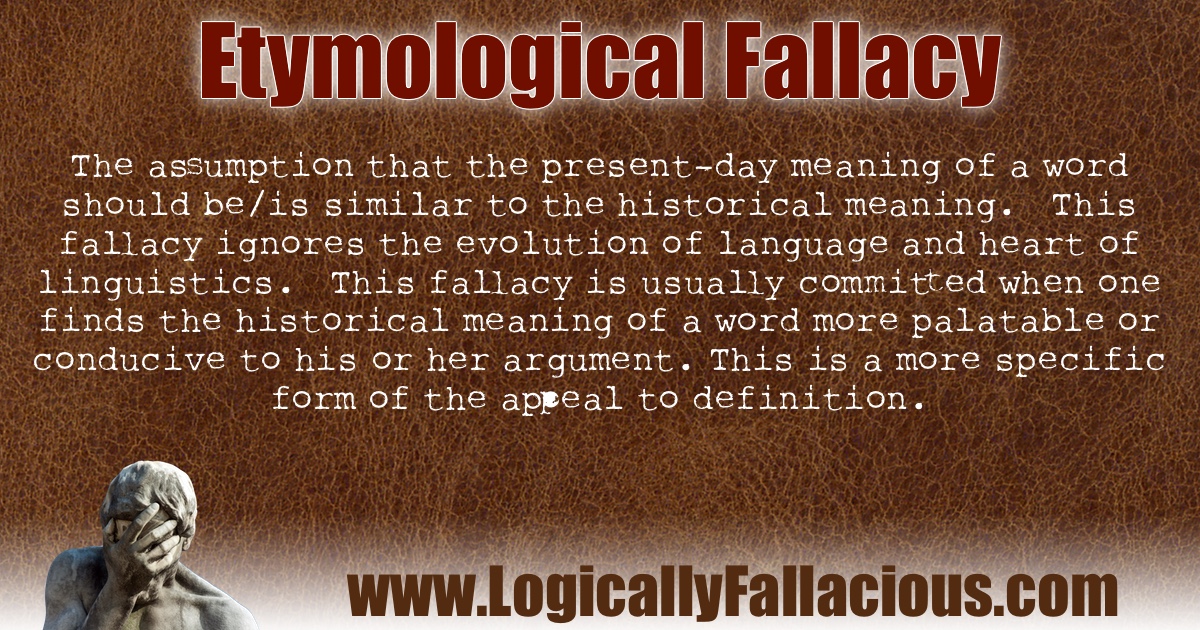Description: The assumption that the present-day meaning of a word should be/is similar to the historical meaning. This fallacy ignores the evolution of language and heart of linguistics. This fallacy is usually committed when one finds the historical meaning of a word more palatable or conducive to his or her argument. This is a more specific form of the appeal to definition.
Logical Form:
X is defined as Y.
X used to be defined as Z.
Therefore, X means Z.
Example #1:
Elba: I can’t believe the art critic said my artwork is awful!
Rowena: He must have meant it in the old sense of the word -- that your artwork inspired awe!
Elba: Yes! That makes sense now!
Explanation: “Awful” did once mean “to inspire awe”, but there are very few, if any, people who continue to use the term in this way. Just because it makes her feel better, it cannot be assumed.
Example #2:
Steve: I think it is fantastic that you and Sylvia are getting married!
Chuck: I cannot believe you think my getting married only exists in my imagination! That is what fantastic means, after all.
Explanation: Yes, it is true "fantastic" was once most commonly used as existing only in the imagination, but common use of this word has a very different definition.
Exception: If a bogus, “modern”, definition is made up by a questionable source, that won’t make all other sources “historical”.
Tip: Don’t call a housewife a “hussy” even though the word “hussy” comes from the word “housewife” and used to refer to the mistress of a household, not the disreputable woman it refers to today. They don’t like that.
